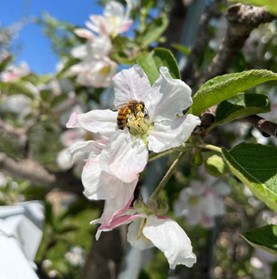Report Bee Kills. Support Funding Evidence Kits
Bee kills reported to the Pollinator Stewardship Council last year came from thirteen states and totaled 14,976 colonies. During the spring of 2014 bee kills reported to us totalled 89,000 colonies in five states. These bee kills were obvious with piles of dead bees at the entrance, dead brood inside the hive, dead adult bees inside the hive, and often dead queens as well. Not all of the bees, wax, and pollen from bee kills was collected for lab analysis due simply to the cost. If a beekeeper’s bees are harmed by the actions of others, the beekeeper must pay $300-plus upfront to have the bees tested for pesticide levels. This is cost prohibitive for many, as that $300 is needed to replace that now weakened or dead bee colony.
The science behind the lab tests is important to help beekeepers, and growers, understand the environment of the honey bee. The real-world of tank-mixed pesticides, of “other ingredients” in pesticides with unknown, un-tested toxicity levels, of pesticide coated seeds wherein the pesticide is often exuded through the pollen and nectar of the plant, are at the root of the health decline of honey bees.
Help us provide the science of the real world of honey bees. We want to provide 200 bee kill evidence kits and the lab analysis for pesticide-related bee kills. Support our work to provide the scientific analysis of the real-world pesticide exposure of honey bees in rural, suburban, and urban areas. Help us protect pollinators. The bees you help today, will be able to pollinate your food tomorrow.
Support our work: Make a donation today to provide bee kill evidence kits and lab analysis.
Take action: Send a letter to EPA Administrator, Gina McCarthy requesting protection for honey bees and native pollinators, and cease the application of bee toxic pesticides on bee attractive plants in bloom with NO exceptions.
Email your friends about our work, about honey bees. . . post this to your Facebook page.








